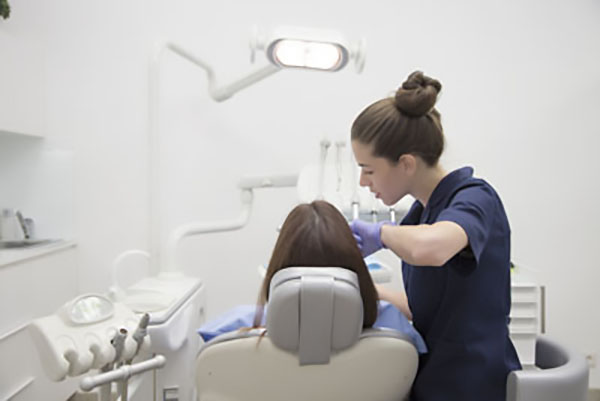Dental Inlays Vs. Dental Onlays For A Full Mouth Reconstruction

A full mouth reconstruction is the repair or replacement of most, or even all, of a person’s teeth. The end goal of the treatment is to restore the health, function and aesthetic of a patient’s mouth. Most candidates for a full mouth reconstruction are people with multiple and widespread dental issues.
A full mouth reconstruction
Full mouth reconstruction procedures prioritize oral health over aesthetics, however, this is not to say that the dentist will not consider cosmetic procedures and goals too.
Dental inlays and dental onlays: A comparison
Both inlays and onlays are types of indirect fillings that are commonly used in full mouth reconstructions. This means that a dentist will have the restorations fabricated, based on impressions of the patient’s prepared teeth. When they receive the restoration from a dental lab, the dentist then places the fabricated restoration in the hole caused by tooth decay. In contrast, direct fillings involve placing putty-like material directly into a cavity.
So what is the difference between the two types of indirect fillings? A dental inlay fits inside the hole that the dentist creates when they remove infected dental tissue during treatment. An inlay only extends to the chewing surface at the center of the molar, but not to the tips or cusps of the tooth.
An onlay not only fills the hole created by the removal of damaged dental tissue, but it also covers the cusps of the molar. A dentist will use an onlay when the damage from tooth decay reaches past the inner tooth to the outer ‘walls’ or structure.
The role of dental inlays and onlays in full-mouth restoration
A candidate for a full mouth reconstruction usually has a set of oral health problems that affect the teeth, gums, jaw or the palate. The most common of these problems are:
- Extensive tooth decay
- Broken or fractured teeth
- Gum infections
- Jaw problems like malformation and TMJ disorders
Inlays and onlays resolve the first oral health problem on the list, which is often tooth decay. So where does the placement of indirect fillings fall in a treatment plan?
Treatment plans for full mouth reconstructions consist of an ordered list of procedures. The list tackles the most immediate problems first. Tooth decay often falls under the ‘immediate problem’ category because, at its core, tooth decay is an infection. The list continues to procedures that tackle underlying issues like gum disease (also an infection) and jaw disorders.
It then follows that the placement of onlays and inlays would be high on the list of procedures that form a custom treatment plan for a patient with advanced tooth decay.
The first step to a healthy mouth starts right here
Patients wanting a full mouth reconstruction should start by reaching out to a dental practice to set up a consultation with a dentist. Reach out today to learn more or to get started!
Request an appointment here: https://totalcareimplantdentistry.com or call Total Care Dentistry & Implants at (760) 394-3088 for an appointment in our Palm Desert office.
Check out what others are saying about our services on Yelp: Read our Yelp reviews.
Related Posts
Wondering how to practice good oral hygiene? Read on for some helpful tips from a family dentist. Good oral hygiene is a cornerstone of overall health and wellness. Regular visits to a family dentist for checkups, cleanings, and instruction in excellent oral hygiene are essential to maintaining healthy teeth and gums.The family dentist is the…
Dental bonding is a versatile and minimally invasive cosmetic procedure that can address various dental imperfections. This procedure, involving the application of a tooth-colored resin to restore or enhance teeth, offers patients a simple and cost-effective solution for achieving a brighter, more uniform smile. Dental bonding is ideal for repairing minor dental flaws without extensive…
A family dentist is an excellent choice for the entire family. If you are a parent, you know that the health of you, your children, and your partner are a top priority. Often, many parents do not schedule their dental appointments because scheduling conflicts with their children’s. This problem goes away when you find your…
Family dentists are uniquely qualified to offer various dental services to patients of all ages. Children, teens, and adults can visit the dentist for teeth cleanings, checkups, cavity fillings, and other restorative dental procedures. This article will examine the qualifications of family dentists to help you find the right one for your family’s oral health.Becoming…
